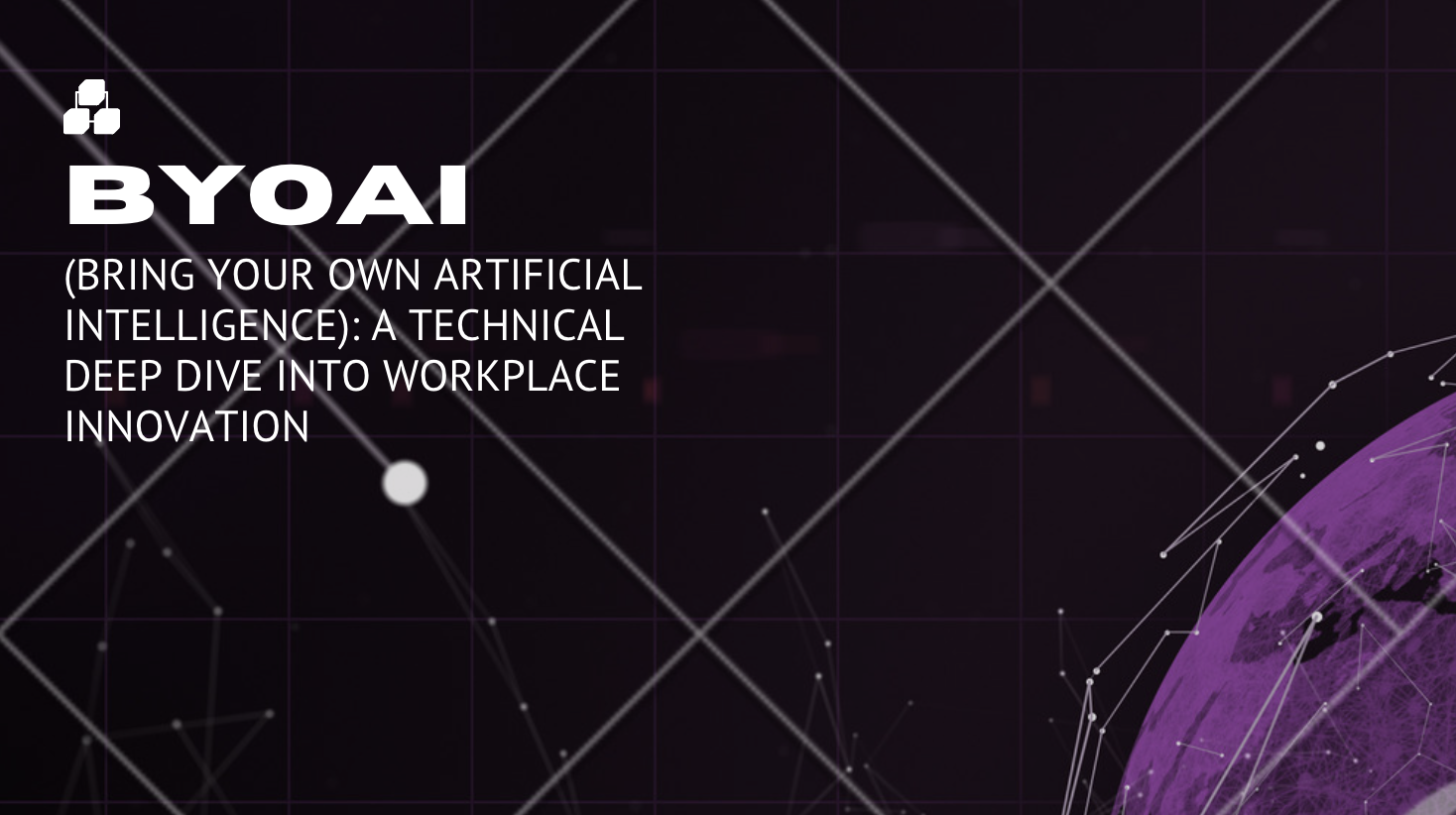BYOAI (Bring Your Own Artificial Intelligence): A Technical Deep Dive into Workplace Innovation
BYOAI, or Bring Your Own Artificial Intelligence, is not just a workplace trend; it’s a transformative approach to integrating AI tools into professional environments. In this technical exploration, we’ll delve into the intricacies of BYOAI, understanding the frameworks, algorithms, and deployment strategies that empower individuals to harness the full potential of artificial intelligence within their unique work contexts.
Understanding the Foundations:
BYOAI revolves around the idea of empowering employees to bring and integrate their preferred AI tools into the workplace. This involves a deep understanding of various foundational aspects:
- AI Frameworks:
- TensorFlow, PyTorch, scikit-learn: Assessing the compatibility, advantages, and use cases of popular frameworks.
- Visualizing Integration: Examining the technical steps involved in integrating different frameworks into existing workflows.
- Innovative AI Algorithms and Models:
- NLP, Computer Vision, Machine Learning: Exploring the technical nuances of cutting-edge algorithms.
- Technical Expertise: Understanding the technical requirements for selecting, training, and optimizing diverse AI models.
Deployment Strategies:
- Productivity Enhancement with Automation:
- RPA, Python Scripting: Implementing AI-driven automation tools for enhanced productivity.
- Data Pipelines and API Integrations: Technical considerations for implementing seamless automation processes.
- Containerized Deployments for Flexibility:
- Docker and Kubernetes: Leveraging containerization for flexible and consistent AI tool deployments.
- Orchestrating Deployments: Understanding the technicalities of managing and scaling containerized solutions.
- Integration with Cloud Services:
- AWS, Azure, GCP: Exploring the technical aspects of integrating BYOAI tools with cloud services.
- IAM Policies: Implementing Identity and Access Management for secure and controlled cloud resource access.
Challenges and Technical Considerations:
- Interoperability and API Standards:
- Ensuring seamless integration through adherence to API standards.
- Data Interchange Formats: Visualizing the role of standardized data formats like JSON or Protocol Buffers.
- Data Security and Compliance:
- Encryption Standards: Implementing SSL for data in transit and encryption at rest.
- Compliance Measures: Addressing data protection regulations (e.g., GDPR, HIPAA) through technical measures.
- Continuous Integration/Continuous Deployment (CI/CD):
- Building Robust CI/CD Pipelines: Technical insights into ensuring smooth updates and changes.
- Automated Testing Frameworks: Maintaining reliability through automated testing in the CI/CD process.
BYOAI is not just a trend; it’s a technical evolution that empowers employees to harness AI tools according to their unique needs. From choosing frameworks and algorithms to deploying containerized solutions and ensuring data security, the technical considerations of BYOAI are multifaceted. Organizations that embrace these technical intricacies while addressing challenges are poised to create a dynamic and technically advanced work environment, where employees contribute to innovation and efficiency through their personalized AI integrations.

Leave a Reply